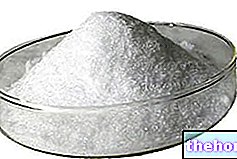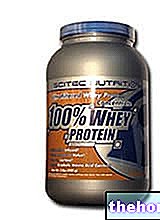What are
Meal replacements, or meal replacements, are food supplements which, in some cases, have physical and chemical characteristics very similar to those of dietary foods;

Being packaged and single-dose, meal replacements are particularly convenient to use; the strengths of these products are: high shelf life, convenient portability and rapid consumption. The relative defects, on the other hand, concern: the NON-specificity of the energy and nutritional inputs, dietary miseducation, the lack of secondary microelements and components nutraceuticals.
Meal replacements are available in the form of: powders, solutions, bars, cookies and snacks.
When and how to use them
Meal replacements can be eaten as an alternative to 1 of the 3 main meals: breakfast, lunch or dinner. They provide, on average, 1/3 of the intake of mineral salts and vitamins for a 1800kcal diet, even if (obviously) this does not guarantee coverage of specific needs; for example: iron for fertile women, folic acid for pregnant women, calcium for growing subjects, calcium for nurses, calcium for the elderly, etc.
Therefore, meal replacements are the quick and disengaging alternative to the pleasure / need to eat; remember that these products provide a STANDARDIZED amount of energy and nutrients, which: if it is good for one subject, it cannot also be good for another! This is the salient aspect to consider BEFORE attempting to use them since, due to this "inconvenience", meal replacements CANNOT replace more than 1 of the 3 main meals per day.
Ultimately, meal replacements could be a suitable choice ONLY if there is a need to eat frugally; for my part, I believe that the application is recommended mainly at dinner, if the other alternatives to meal replacements are fasting or the junk-food of fast food.
Do they lose weight?
The traders who deal with meal replacements often make use of some published studies in favor of their products, in which it is found that the inclusion of these food supplements in the diet can help reduce excess body weight. if (for example) an 800kcal dinner were replaced with a 100 or 200kcal smoothie, in the long run, the effect would undoubtedly be slimming.
On the other hand, I invite readers to use a new interpretation as an essential attitude for greater awareness of the topic; the goal is to concretely evaluate the relevance of meal replacements (or any other supplement) within your diet:
'If 1 or 2 apples were consumed instead of the meal replacement, having roughly the same caloric intake (78-180kcal), would the slimming effect be the same?'
Obviously yes.
Some faithful consumers could object by pointing out that, between the one and the other alternative, there is a considerable lack of nutritional balance ... BUT reflecting carefully, remembering what has already been mentioned above, you will notice that one of the primary measures in the use of meal replacements is to consume them a maximum of once a day, in order to be able to fill the relative nutritional deficit with the ordinary diet of other meals. So:
"Why not do the same with easily transportable foods such as: a fruit, a slice of bread, some dried and dehydrated fruit ... saving a significant amount of money?"




























